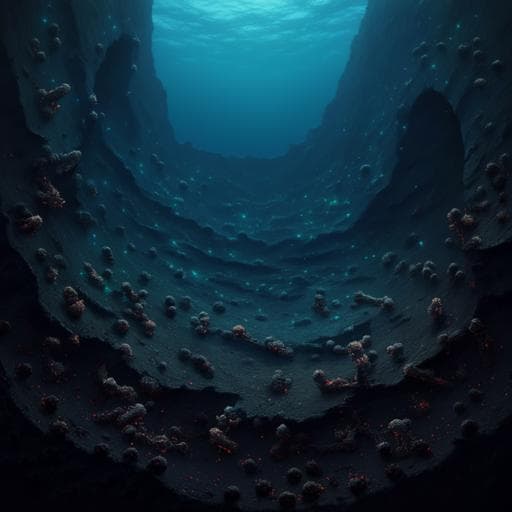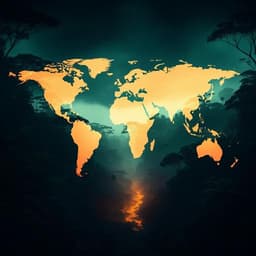
Earth Sciences
The hadal zone is an important and heterogeneous sink of black carbon in the ocean
X. Zhang, Y. Xu, et al.
Discover the groundbreaking research by Xi Zhang and colleagues on black carbon accumulation in the hadal zone—the ocean's deepest trenches. Their study reveals that black carbon, sourced from terrestrial plants and fossil fuels, makes up 10% of total organic carbon in these depths, highlighting the hadal zone as an unexpected major sink for black carbon. Dive into this riveting exploration of our planet's less-known ecosystems!
Related Publications
Explore these studies to deepen your understanding of the subject.







